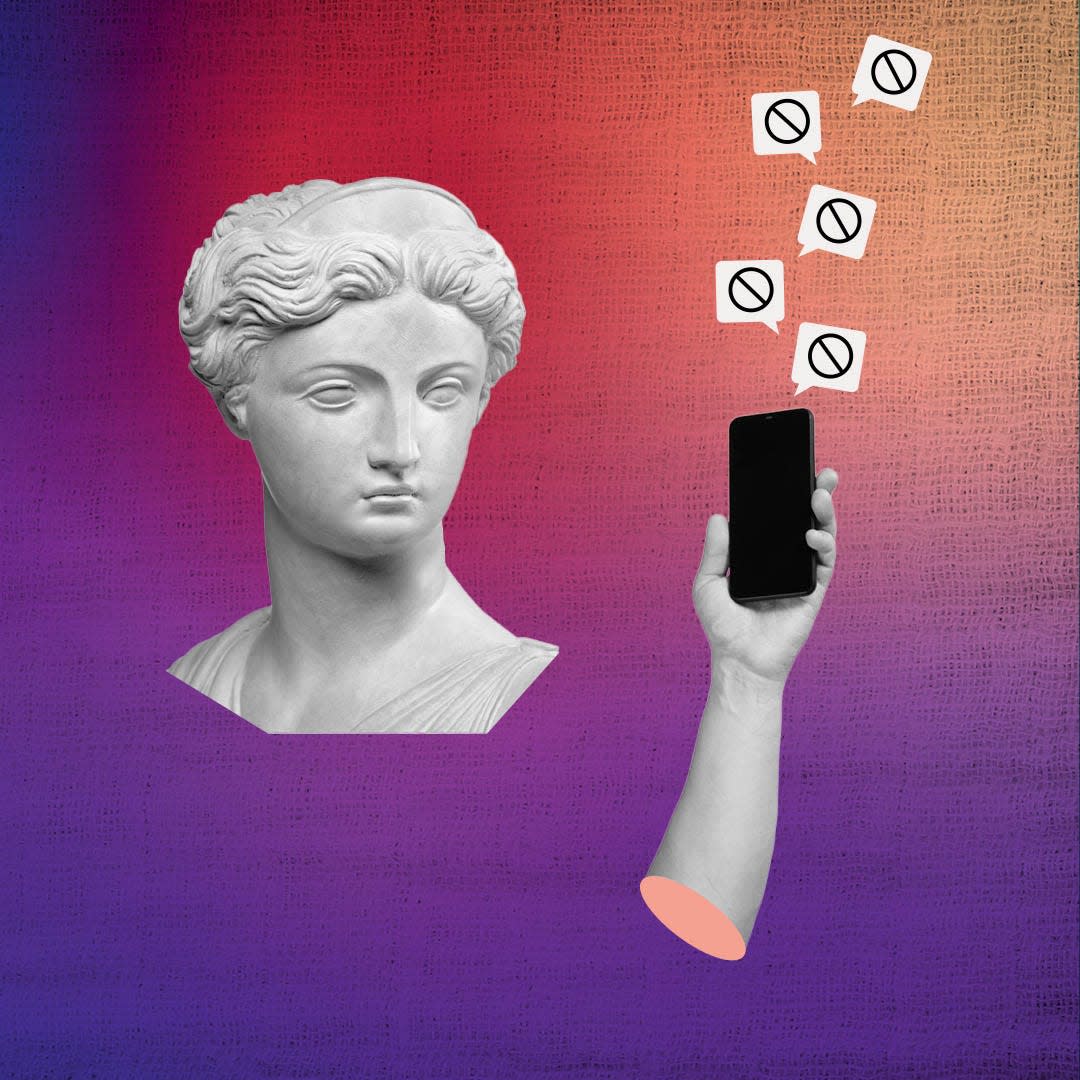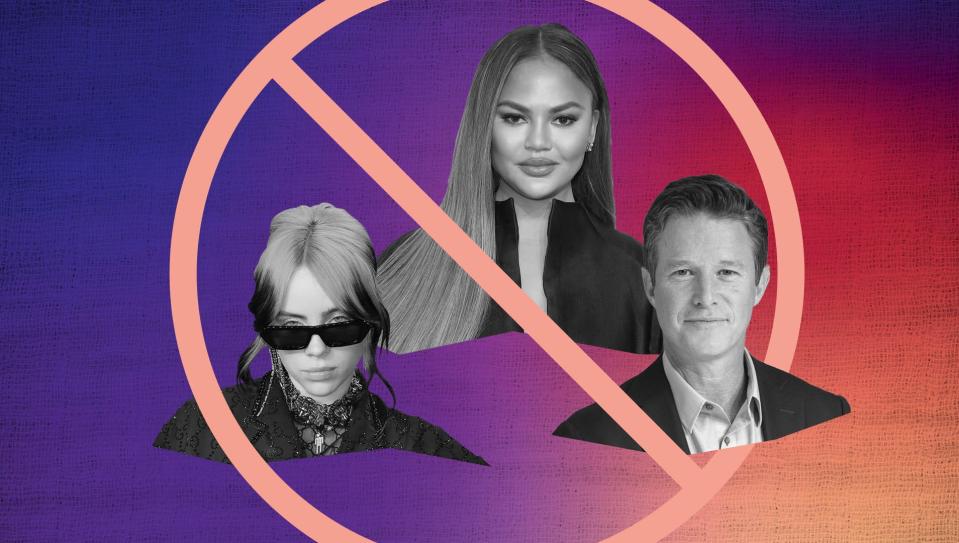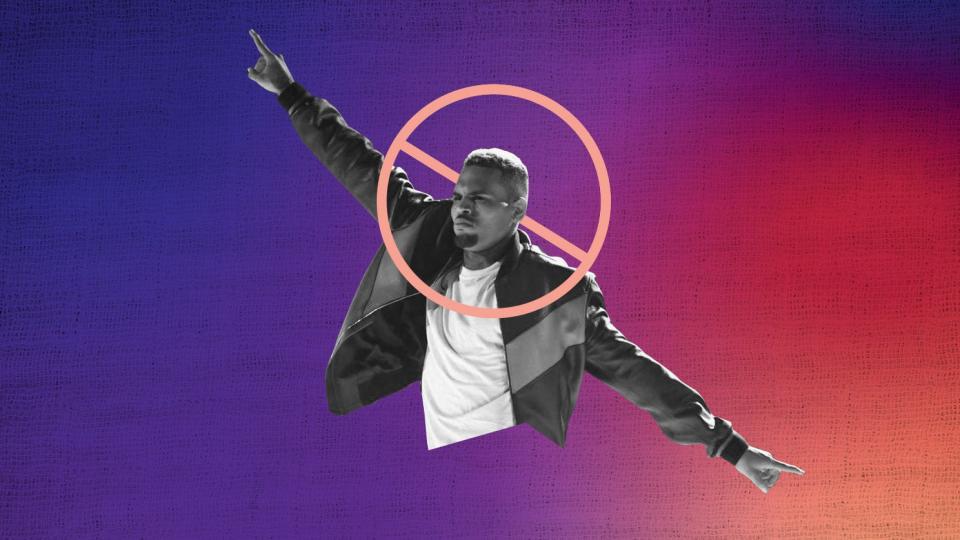It’s time to cancel ‘cancel culture.’ Call it ‘accountability culture’ instead.

- Oops!Something went wrong.Please try again later.
- Oops!Something went wrong.Please try again later.
To cancel or not to cancel? That is the question.
Public figures have increasingly confabulated "cancel culture" or been "canceled" themselves in recent years. Bill Cosby? Canceled. Harvey Weinstein? Canceled.
And it's not just criminal offenders. Everyone from Billy Bush to Chrissy Teigen and Billie Eilish has been subject to "cancellation" based on past mistakes or actions, ranging from accusations of bullying, misogyny, racism and more.
The political right has maligned "cancel culture," lamenting what they perceive as the left seeking political correctness over small missteps.
But when we say "cancel," what do we actually mean? If we mean someone should be held accountable shouldn't we say that instead?
Experts say referring to "cancel culture" as "accountability culture" would help hold people accountable for their wrongdoings – but actions speak louder than words. And altering the term comes with consequences of its own – doing so bows to pressure from those misusing it in the first place.

Food for thought: Chrissy Teigen is apologizing for her bullying and mean tweets. Is forgiveness possible?
‘I’m embarrassed and appalled’: Billie Eilish addresses ‘racist slur' video
What is ‘cancel culture’ and where did it come from?
The phrase has been traced back to the 1980s, in a song by the band Chic. Lyrics reference a breakup and being "canceled" as something that would happen to people in a relationship, according to Ange-Marie Hancock Alfaro, dean's professor and chair of political science and international relations at the University of Southern California.
A part of Black culture, the phrase grew to symbolize a particular kind of accountability.
Social media's rise and a constantly changing barometer for acceptable, appropriate behavior and language has inspired more "canceling" than ever before.
Reasons for cancellations vary widely. Teigen was "canceled" for her history of cyberbullying, while Weinstein and Cosby are convicted sex offenders. But social media values outrage over nuance.
While many Americans know about "cancel culture," a substantial portion don't. According to a Pew Research Center study released last month of about 10,000 U.S. adults, 44% of Americans heard at least a fair amount about "cancel culture." But 56% heard nothing or not too much, and 38% had never heard of the term. Understanding of the term varied among political parties. The survey was conducted in September 2020.
"Cancel culture" evidently deviated from its origins. Like a train off its tracks.
Obama, Alton Brown apologized for harmful words. Should we forgive past problematic views?
In case you missed it: The problem with Jeffrey Toobin's apology
What ‘cancel culture’ has become now
"Cancel culture" has swelled into deliberate attempts to shame someone in the public square that is the internet – and while it's worked in some cases, it hasn't in others.
Still, "when a person is targeted for cancellation, it is anything but arbitrary," says Molly McPherson, expert on crisis communications in the age of social media and author of "Indestructible: Reclaim Control and Respond with Confidence in a Media Crisis."
Why would someone be canceled? It can range from jokingly saying you're tired of someone, to refusing to support a transphobic artist, says Rayven Vinson, a policy analyst and student from Baltimore, Maryland. It can also mean asking for those who cause or have caused harm to be de-platformed.
People who have traditionally held power and privilege in society lambast the term. "You hear it as a critique, largely by more powerful, older, generally white, dominant people who have had fairly large platforms to say that something's happening that's very wrong culturally," Lara Schwartz, director of the Project on Civil Discourse at American University, says.
Despite how often people discuss "cancel culture," many have evaded cancellation, including artists like Chris Brown, who has been accused of violence against women on numerous occasions.

Speaking of Chris Brown: Chris Brown is accused of more violence against women. Are we ready to cancel him yet?
Why ‘accountability’ might be better than ‘cancel’ – and what true accountability looks like
So, does "cancel culture" need to be, well, "canceled?" (And not in the way Greg Gutfeld suggests?)
"If the move toward accountability culture helps to clarify what the intent is of canceling someone, I'm all for it," says Isabel Araiza, an associate professor of sociology at Texas A&M, Corpus Christi.
But changing the term from "cancel culture" to "accountability culture" does not magically send someone on a quicker path to becoming a fully realized, reformed human.
In terms of what true accountability entails, answers vary for public and private figures, as well as what type of harm a person commits.
Schwartz says American society is "very punitive," and that consequences for all kinds of mistakes are high.
That said: "We have to understand that there's a difference between having different opinions on something like what movie should have won best picture at the Academy Awards and, say, what someone else's fundamental human rights should be," Vinson says.
Re-traumatizing the wronged also fails as an accountability measure.
"If I don't 'agree' with you on something as central as my right to live my life as a queer woman of color in peace, I'm under zero obligation to continue to give part of myself to you with every interaction," Vinson says.
How accountability would work best in a democracy, according to Hancock Alfaro, is for people to see the errors of their ways, and for them to then stand up, apologize and do better going forward.
McPherson recommends three steps to ensure accountability:
Own your mistake. "Admit, acknowledge, accept or apologize for your actions. Make amends by expressing genuine accountability," McPherson says.
Explain what went down in the first place. "Everyone deserves a moment of context in a crisis to explain why something happened," she adds.
Make a promise that separates you from your infraction. "If a response dwells on excuses, expect to be challenged, and then start drafting a crisis plan immediately," she says.
Does someone deserve to be ‘canceled’ forever?
It depends – both on who you ask and what happened.
"People who are blatantly racist, or cause serious harm or damage to a person or group – think (Weinstein) or (Cosby) – deserve to lose their position of power and their spotless reputation for good," McPherson says. "However, when someone has a lapse in judgment, has a misfortunate quote, or is accused of poor behavior – think (Teigen) or Alison Roman – they can forge a path towards redemption if they show true accountability and remorse."
Repentance remains a key differentiator. "If we were talking about someone who was an unrepentant, molester, or serial assaulter, and had no repentance or conscience of guilt, and conscience of meeting accountability, then I think we could make a case for sort of permanent cancellation," Hancock Alfaro adds.
Forgiveness is possible. But don't expect everyone to welcome you with a warm hug. As Vinson puts it: "For those who want help to be better humans, there's always room to provide them resources to better themselves. I'm not in the business to tossing people like garbage, I just also don't have to be the one to help them."
More on Gutfeld: Greg Gutfeld promises he'll cancel 'cancel culture' in 'subversive' new late-night Fox News show
This article originally appeared on USA TODAY: Why 'cancel culture' must go and 'accountability culture' should stay

